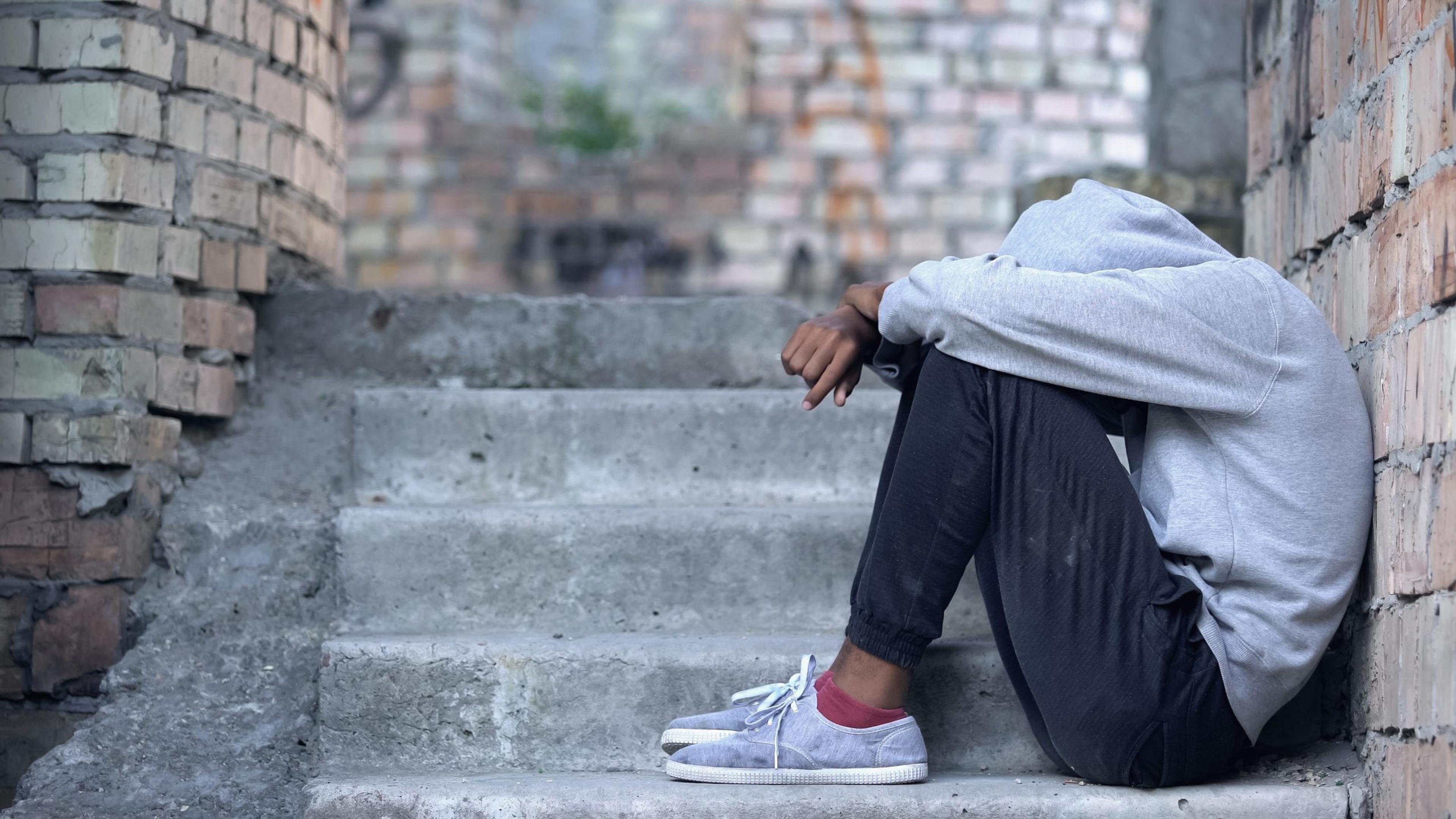Grand Rapids Organization Helping LGBTQ+ Youth Address Homelessness and Health
Julie Bitely
| 4 min read

Homelessness and housing instability affect LGBTQ+ youth at more than twice the rate of their heterosexual, cisgender peers. Black LGBTQ+ young people are particularly at risk, especially young men, and the increased incidence of housing instability is tied to poor mental health outcomes. A research brief from the Trevor Project showed that LGBTQ youth who experienced housing instability reported considering suicide at twice the rate and attempted suicide at more than three times the rate of LGBTQ peers with stable housing.
A place to be authentically yourself
For D.L. McKinney and Luke Petsch, the stories and lives of homeless teens and young adults transcend statistics. McKinney works as the director of the youth drop-in center at HQ, a Grand Rapids-based organization that serves members ages 14-24 experiencing a housing crisis. Petsch serves as HQ’s development director. HQ recently merged with 3:11 Youth Housing, which works to place young adults experiencing homelessness or housing instability into safe, affordable housing. The new name for the merged organizations is A.Y.A. (As You Are) Youth Collective. For many of the LGBTQ+ youth who access services at HQ, 3:11 and now A.Y.A, having a place to go where there’s no need to hide aspects of their identity can be a powerful buffer against feelings of despair. McKinney said it’s not surprising that housing instability and suicide intersect for this population. Many leave their homes because they don’t feel safe living authentically, while others are kicked out when parents or guardians reject their identity. Staff are trained regularly on harm reduction and de-escalation techniques for young people experiencing crisis. Many have lived experiences that reflect those of members, giving teens and young adults an opportunity to see themselves in the mentors they’re working with. Building trust and affirming relationships with the young people walking through the doors is key, Petsch and McKinney said. “We work really hard to celebrate the individual identities of every youth that comes through our space,” Petsch said.
Providing a healthier path
Prior to the COVID-19 pandemic, members were able to visit the drop-in center to rest and watch TV, play music, take a shower, use the laundry facilities or sit down with staff to work on goals related to work, education and life dreams. The center was serving about 45-50 people per day. With restrictions in place due to COVID-19, the center is still seeing members by appointment, helping up to 20 per day. While the dynamic has changed due to the pandemic, youth are still finding their way to the center. A Comprehensive Health Initiative launched in the fall of 2019 aims to further help those experiencing homelessness by opening access to physical and mental health care, as well as wellness programming through activities such as yoga, meditation and Zumba. McKinney said those services are also engineered to be affirming and celebrating for LGBTQ+ members. McKinney said the health care experience can be fraught for LGBTQ+ patients for a variety of reasons, including stigma, being misgendered or feeling misunderstood as a person. As a population, LGBTQ+ people have lower rates of health insurance, lower rates of a primary care relationship and often go unseen for common health needs. “People will exit from services and find ways that may not be as safe to care for themselves,” they explained. Working with core community partners, HQ members can have their urgent needs met in a positive setting and access help to secure health insurance and make connections to health care resources in the community with a known track record of being LGBTQ+-friendly and affirming. Petsch said addressing the health needs of members is one more way to help them find stability and move forward with positivity. “When your whole world is in threat, you live your life in a reactionary way,” Petsch said. “We’re working to create spaces where youth can feel safe and make active plans to work towards stability.” Blue Cross Complete has supplied funding in support of HQ’s Nurse’s Station, part of the organization’s Comprehensive Health Initiative, and other programming since 2018. “Blue Cross Complete seeks to foster healthy communities, and a community can’t be truly healthy if any group within it is in systemic distress. We’re proud to partner with organizations like A.Y.A. to support the LGBTQ+ youth in our communities in their quest to lead healthy, happy lives,” Julie Aronica, strategic initiatives director, Blue Cross Complete of Michigan. If you’re in need of support and live in or near Grand Rapids, you can learn more about A.Y.A. Collective services by visiting 3-11.org or hqgr.org. If you are located elsewhere in Michigan, Equality MI and 211.org are good places to start to find resources near you. Related:
Photo credit: Motortion





